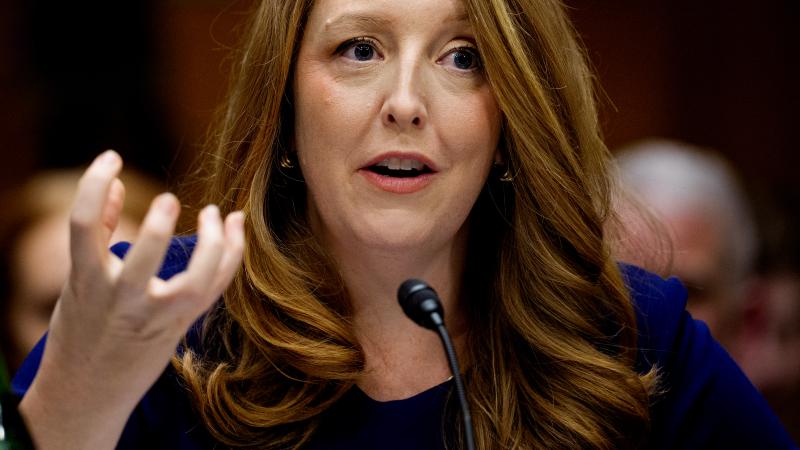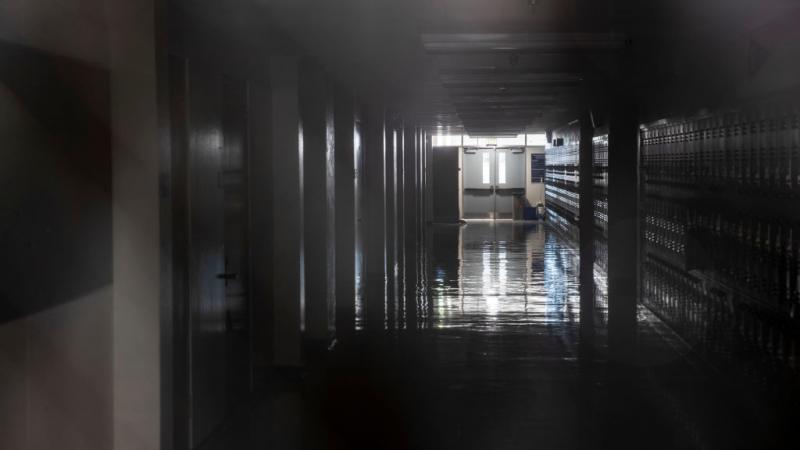Amnesty for millions of illegal immigrants in Democrats' reconciliation bill could fail in Senate
Democrats are also seeking to drop the requirement that a child's Social Security number is needed for parents to collect the child tax credit of up to $3,600 per child.
Provisions in the Democrats' $1.75 trillion budget reconciliation bill offering legal status to illegal immigrants could fail in the Senate.
The Congressional Budget Office projects that more than 6.5 million illegal immigrants would receive legal status or a path to citizenship as a result of the legislation in its current form.
The Senate parliamentarian has already ruled that the reconciliation bill could not include provisions granting legal status or citizenship. Despite this, the House-passed version of the bill, titled the Build Back Better Act, includes immigration policy changes.
According to the Center for Immigration Studies, the Congressional Budget Office "estimates that 6.5 million aliens would receive parole ('amnesty lite,' if you will), making them eligible for various tax credits and welfare." In addition, "within this population, the CBO projects that 3 million aliens will obtain [lawful permanent resident] status (amnesty premium) and a path to U.S. citizenship by virtue of first obtaining parole."
Democrats are also seeking to drop the requirement that a child's Social Security number is needed for parents to collect the child tax credit of up to $3,600 per child. Currently, parents are required to disclose their dependents' Social Security number on their tax return in order to collect the credit.
The CIS estimates that eliminating the Social Security requirement could cost taxpayers more than $10 billion. Under Biden's $1.9 trillion American Rescue Plan, parents who do not earn income can for the first time collect the child tax credit. The stimulus bill also expanded the amount of the credit for taxpayers who meet the specified income thresholds.
House GOP Leader Kevin McCarthy has criticized the Democrats for including immigration reform provisions in the reconciliation bill after the Senate parliamentarian's ruling in September.
The Congressional Progressive Caucus and Congressional Hispanic Caucus had advocated for including immigration reform in the legislation.
"We need to keep all the options on the table for immigration, so that when the parliamentarian rules, we will have those options on the table," Washington Democratic Rep. Pramila Jayapal, chair of the Congressional Progressive Caucus, said during the negotiations on the bill earlier this month. "That's what we're working on, get as much as we can in, and I believe that we're going to get a resolution on that."
In early November, West Virginia Democratic Sen. Joe Manchin said he was opposed to adding immigration reform to the budget reconciliation process, which Democrats are using to get around the legislative filibuster in the Senate.
"I'm not going to vote to overrule the parliamentarian," Manchin said. "For us to even be talking about immigration without border security is ludicrous."
Manchin also said that if migrants think they can come into the U.S. and "get all the different benefits that people, the citizens of America get, are entitled to, they're going to continue to come."
One no vote from a Democratic senator in the 50-50 Senate could prevent the budget reconciliation bill from moving to President Biden's desk.













